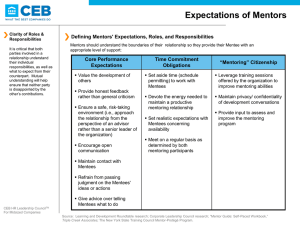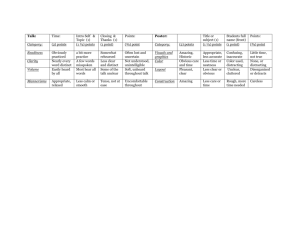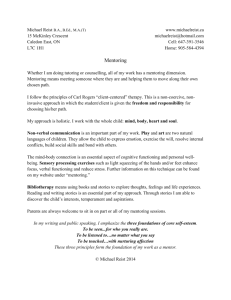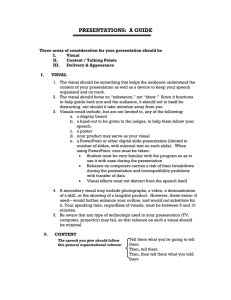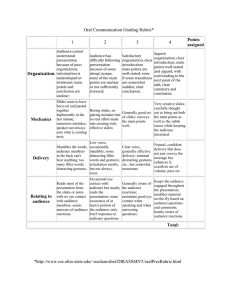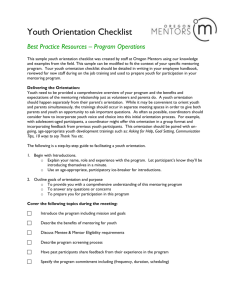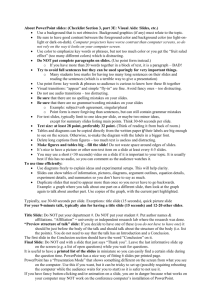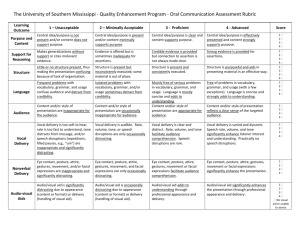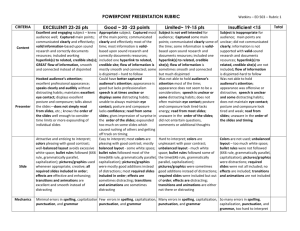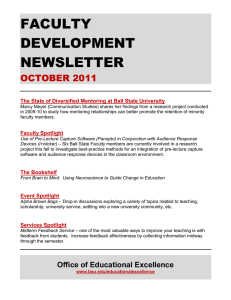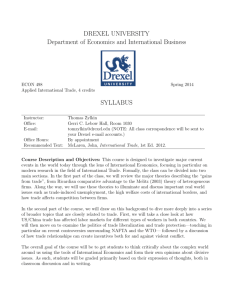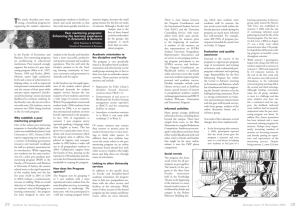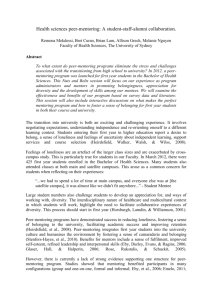examples of “roadblocks” to effective communication
advertisement
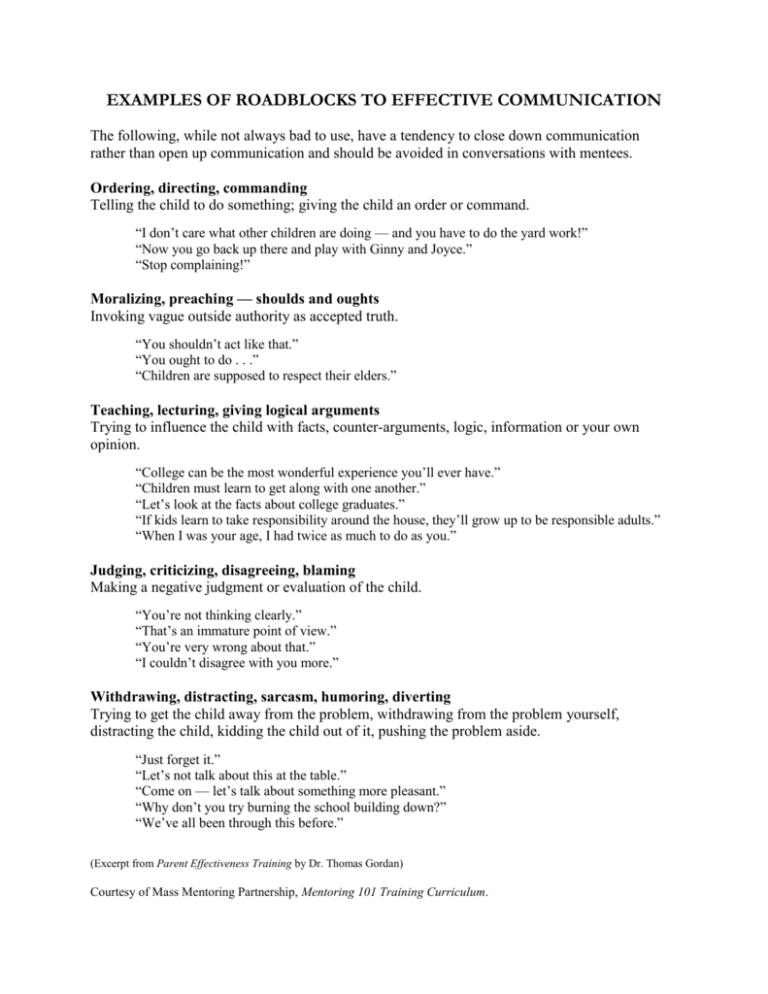
EXAMPLES OF ROADBLOCKS TO EFFECTIVE COMMUNICATION The following, while not always bad to use, have a tendency to close down communication rather than open up communication and should be avoided in conversations with mentees. Ordering, directing, commanding Telling the child to do something; giving the child an order or command. “I don’t care what other children are doing — and you have to do the yard work!” “Now you go back up there and play with Ginny and Joyce.” “Stop complaining!” Moralizing, preaching — shoulds and oughts Invoking vague outside authority as accepted truth. “You shouldn’t act like that.” “You ought to do . . .” “Children are supposed to respect their elders.” Teaching, lecturing, giving logical arguments Trying to influence the child with facts, counter-arguments, logic, information or your own opinion. “College can be the most wonderful experience you’ll ever have.” “Children must learn to get along with one another.” “Let’s look at the facts about college graduates.” “If kids learn to take responsibility around the house, they’ll grow up to be responsible adults.” “When I was your age, I had twice as much to do as you.” Judging, criticizing, disagreeing, blaming Making a negative judgment or evaluation of the child. “You’re not thinking clearly.” “That’s an immature point of view.” “You’re very wrong about that.” “I couldn’t disagree with you more.” Withdrawing, distracting, sarcasm, humoring, diverting Trying to get the child away from the problem, withdrawing from the problem yourself, distracting the child, kidding the child out of it, pushing the problem aside. “Just forget it.” “Let’s not talk about this at the table.” “Come on — let’s talk about something more pleasant.” “Why don’t you try burning the school building down?” “We’ve all been through this before.” (Excerpt from Parent Effectiveness Training by Dr. Thomas Gordan) Courtesy of Mass Mentoring Partnership, Mentoring 101 Training Curriculum.
